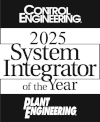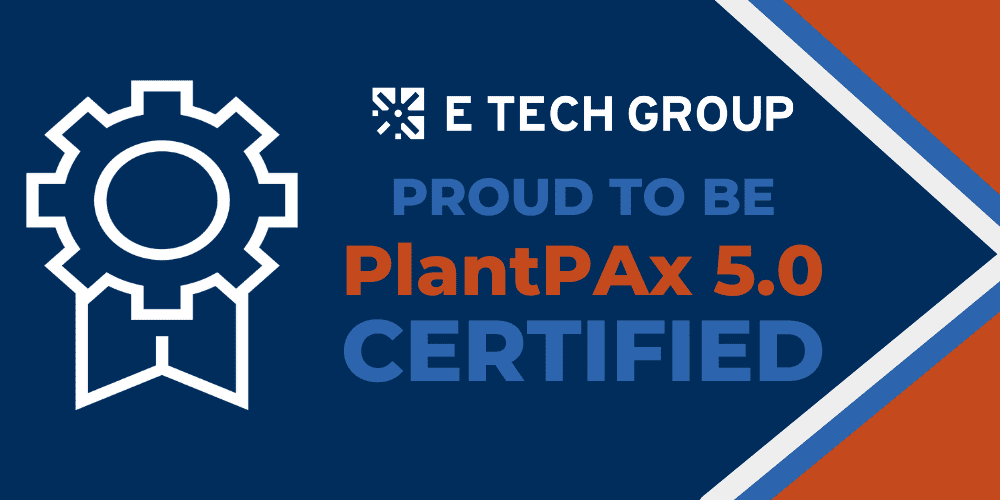Automation will solve many problems—but not without people supporting it. Derrick Colyer, Business Development Manager at E Tech Group, shares his insights in this latest Food Engineering article on automation trends. Derrick discusses the role of AI in food manufacturing, and why digital transformation needs to come first. What’s Going on with Automation in the Food & Beverage Industry? The food and beverage industry has been one of the slowest to adopt new technologies—and maybe that’s a good thing. The auto, chemical and petroleum industries, for example, have served well as testbeds for new automation technologies. Meanwhile, food and beverage has benefitted from all the trialing and proving of “bleeding-edge” systems such that the buzzwords we’ve used for the last few years—e.g., “digital transformation,” AI/ML, “digital twin” and Industry 4.0—are becoming everyday terms that describe technology we now rely upon to be competitive in today’s changing world of consumer tastes. What Do the Automation Engineers & Integrators Have to Say? So, I asked system integrators, engineering houses and automation suppliers what their food processor clients perceive to be the three to five key trends/issues in automation today, and how processors are taking advantage of these automation trends. After tabulating the results, the top five trends cited were: Visualization (including enterprise, platform, machine and remote visibility) Data collection and analytics plus AI/ML Digital transformation Robotics and automated material handling (extending to warehouse automation) Security/cybersecurity Effective Automation & Visualization Go Hand-in-Hand When I asked integrators and system suppliers what are the key trends affecting food and beverage processors, their most-often cited responses were enterprise visualization/machine visibility/remote visibility—and tied with visibility were the tools that provide the instrumentation food processors use to achieve the visibility; that is, analytics/data collection/AI/ML, etc. As in IFR flying, without sensor data to power the visualization/instrumentation system, you … Continued

Challenge
Complex upgrades require advanced expertise. Experienced system integrators will use a holistic approach to fully scope automation system upgrades and consider how the project’s complexities will impact the customer’s budget, uptime, timeline, or performance requirements. An example of this was a PLC-5 and SCADA application upgrade for a leading rice milling company. The company had an obsolete PLC-5 controlling their rice finishing line, in addition to an obsolete SCADA application controlling their entire facility. The legacy SCADA system was costly to keep operational, and the existing network caused communications issues between the customer’s production areas. The customer needed a new PLC program to be installed within a 48-hour timeframe to minimize production impacts, and the existing SCADA system needed to remain operational during the migration to Inductive Automation’s Ignition platform. E Tech Group was engaged as the customer’s choice system integrator given their advanced expertise in system migration and the successful execution of projects at the customer’s other facilities.
Solution
E Tech Group’s goal is to set the customer up for long-term success, not just short-term gains. The project team created a site inventory of the customer’s existing PLCs, network, computers, and applications. PLC specifications were quickly defined, and long lead items were ordered. The project team remained in constant communication with the customer to keep them well-informed across the different project stages and how to best utilize the new system. The project included upgrades to servers, computer, and network switches in collaboration with the customer’s IT department, the upgrade to Ignition SCADA software across six applications with approximately 500 screens, and the upgrade to two ControlLogix PLC chassis.
Results
The SCADA upgrade was completed in several phases and each application was upgraded individually. This helped minimize impacts to the customer’s production efforts and enabled the legacy and new SCADA applications to run simultaneously so the customer’s personnel could learn the new SCADA software. E Tech Group staffed the project with subject matter experts in the Ignition SCADA platform, control engineering, and complex system migrations. E Tech Group leverages this diverse, multidisciplinary engineering approach to create intelligent automation solutions for the customer’s long-term success and the opportunity to support their operations in the years to come.
Challenge
A supplier of Latin food products was challenged to increase the efficiency of their canned goods sterilization process. Their goal was to move away from a manual sterilization process and move into the future with automation. The food products supplier engaged E Tech Group to improve the efficiency, accuracy, and the flexibility of their operations given their in-depth experience in automating manual processes.
Solution
The first step was developing a solid system design. E Tech Group’s project team built the controls scheme from the ground up with considerations specific to the customer’s processing needs and sterilization standards. These considerations included hardware reliably, accurate instrumentation, and logical program flow.
The automated process design leveraged the customer’s existing controls and integrated new technologies. This included an Allen Bradley CompactLogix Controller, Flex IO Remote Rack, PanelView HMI, ABB Drives, safety monitoring relay, and instrumentation for high temperature environments. The detailed system design allowed for a smooth installation and commissioning of the project.
Results
E Tech Group staffed the project with subject matter experts in instrumentation, Ethernet-enabled devices, temperature control, safety equipment, and electrical design to support a successful execution. The project team designed, developed, tested, and commissioned the project in about six weeks and helped the customer reach their goal of increased efficiency. The automated sterilization process helped increase the customer’s production rates in comparison to their previous manual process, and provided enhanced data reporting to make informed production decisions. With the automated sterilization process in place, the customer is able to improve the productivity, accuracy, and flexibility of their operations.
E Tech Group is excited to announce that after several successful installations and completed audits, we are now one of the first integrators to become Rockwell PlantPax 5.0 certified. We want to thank our team members who worked diligently to ensure this prestigious achievement was possible, and hope you’ll consider us for your next PlantPax installation/solution



